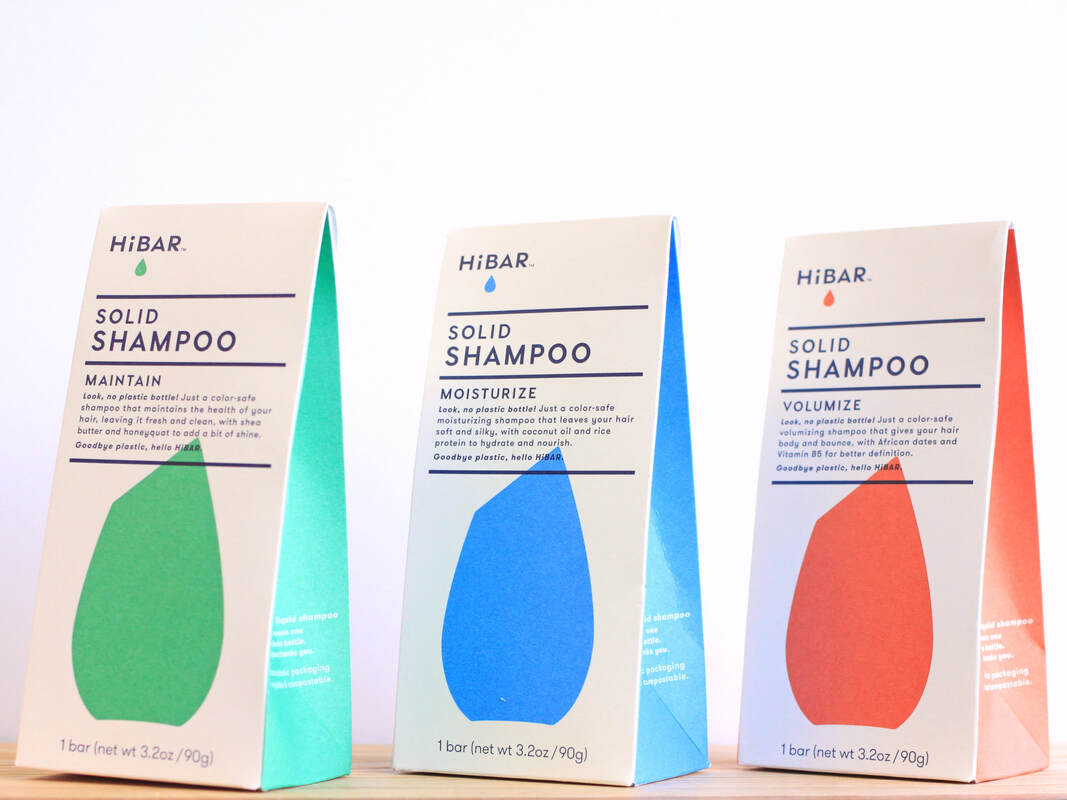|
By: Javayria Mudassar Many of us have probably grown up using shampoo for a variety of reasons. The most obvious reason is that it keeps our hair clean, grease-free, and shiny. Every year, the number of companies that are branded as ‘sustainable’ cosmetics increase tremendously, whether that be for cruelty-free products or natural moisturizers. However, many fail to take in two extremely important factors: how it affects the environment after product use and the packaging it comes in. Why are shampoos harmful to the body?
Traditional shampoos that are created using chemical formulas are extremely harmful to the hair and scalp. The harsh chemicals in the shampoo strip the hair down and remove natural oils that protect the hair from damage. Although the hair looks clean and feels silky temporarily, it is prone to breakage and irritation of the scalp. It is important to know that two ingredients that take the oil and wax off your hair, sulfates and ammonium, are actually detrimental to the environment and your health. Ammonium is known to cause cancer, hair loss, scalp rashes, and other health complications. How do they harm the environment? Shampoo does not stay on your hair forever—it ends up going down the drain and entering water bodies. Sometimes, this can result in harmful substances that affect human drinking water, pollute rivers, and harm wildlife. The problem is in the makeup of the chemical formulas for shampoo. Sulphates, which are present in nearly every shampoo found in stores, are actually used as pesticides, which pose a threat to the biodiversity of lakes and rivers by killing larvae and aquatic insects. Chemicals such as sodium laureth sulfate can induce mutations in animals’ genetic makeup and can sometimes be fatal. What shampoo should I buy now? Of course, we still need to keep our hair clean. However, there are plenty of more sustainable options available on the market that have minimal harm on both the environment and our bodies. Things to look for when purchasing shampoo or hair products in general include:
Most regular shampoos that we see in pharmacies or superstores are harmful to both yourself and the environment. Considering that the majority of the ingredients are non-degradable and have lasting impacts on living organisms, it is safe to say that finding a more suitable alternative will have a positive impact on the Earth and your hair! Sources: Green Matters https://www.greenmatters.com/p/shampoo-effects-environment Keeping Our Planet Alive (KOPA) https://keepingourplanetalive.ca/blogs/blog/how-bad-is-shampoo-for-the-environment
7 Comments
1/6/2022 10:15:27 pm
Thanks for pointing out that ammonium is actually detrimental to the environment and our health. I would imagine that any business owner would want to avoid incidents that can affect their operations. I think they should look for ammonia detectors to ensure safety inside their establishment.
Reply
1/27/2022 07:51:25 am
What an exquisite article! Your post is very helpful right now. Thank you for sharing this informative one.
Reply
8/17/2022 12:41:54 am
Most of us wash our hair regularly or at worst, every alternate day without giving it a second thought. Wrong. That is, according to some of supposed hair professionals and anti-shampoo preachers. The “no ‘poo’” movement began to gain energy last fall, and recently, people are still discarding their shampoo bottles in wishes to attain that healthy head of hair. But despite, there are those of us who haven’t actually incorporated the idea of allowing our natural oils flow independently. If you’re still using, you might be thinking just how bad shampoo actually is for your hair. If you prefer to break a sweat on the day to day, you might discover going without a wash following a workout discomforting. You don’t have to wash after every workout, but if you’re anxious about going ‘poo-free, a dab of baby powder or dry shampoo can work wonders.
Reply
10/10/2023 06:44:56 am
It was most captivating when you shared that shampoo would go down the drain and enter water bodies. My friend wants to use shampoo for hair loss. I should advise her to look for a store that offers hair growth products proven to produce results.
Reply
Leave a Reply. |
TUGIWelcome to Seeds for Thought, the TUGI Blog where we will be highlighting incredible stories of environmental activists and change makers, environmental news, and tips to living a more green and sustainable lifestyle. If you are interested in learning more about what we are doing on a monthly basis, subscribe to our TUGI Newsletter. Archives
May 2021
Categories |
TUGI
|
|

 RSS Feed
RSS Feed
